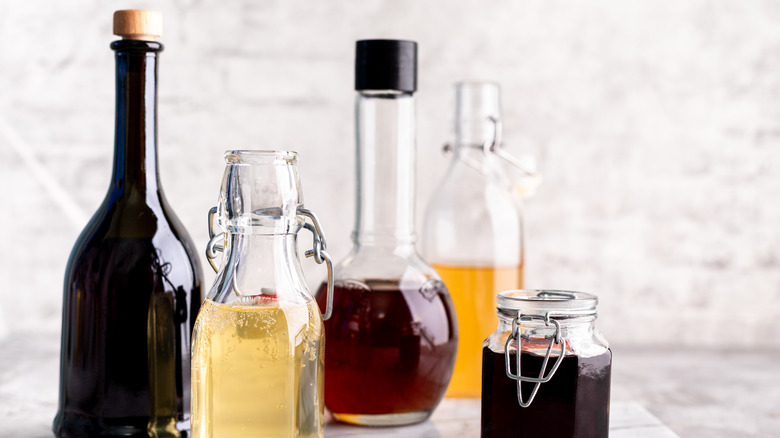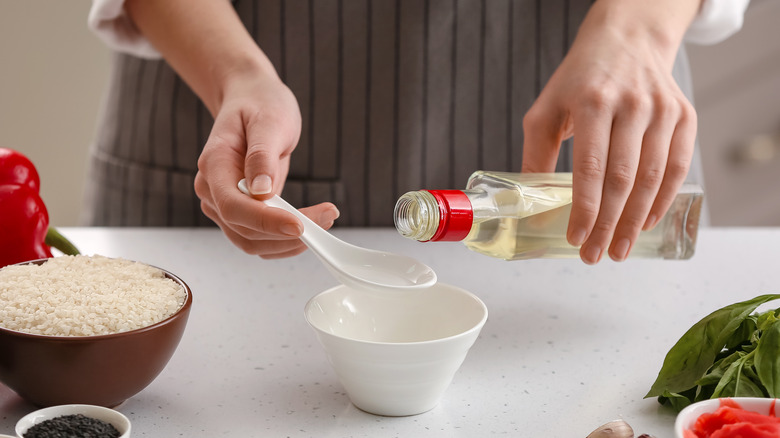The Tale Of Vinegar Started In 5000 BC
Some might write it off as wine's stinkier, less fun cousin, but vinegar is pretty special. Not many liquids can claim to be condiments, beverages, medicines, and cleaning agents at various points in their history. Vinegar, it turns out, has been around for quite a while — 10,000 years by some estimates.
While chemical traces of vinegar have been found in Egyptian urns from 3000 B.C., Babylonian records mention the liquid's use as early as 5000 B.C. as a preservative, condiment, and a sort of ancient Gatorade when mixed with water. Greeks added honey to this beverage, calling it "oxycrat," and attributing medicinal properties like anti-inflammation and strength to the product.
In China, vinegar was used medicinally as well, applied to burns as a salve, or consumed to prevent disease, fatigue, and obesity. In medieval Europe, the substance was thought to ward off sickness and plague. One infamous account of this is the "Four Thieves Vinegar," an herb-infused vinegar said to be used by a band of thieves for protection as they looted Marseilles during the Black Death. While it's no longer considered a medicine, research now traces some health benefits to apple cider vinegar, like lowering blood sugar and aiding skin health.
Certain uses of vinegar have never changed. It is used to this day to pickle and store foods for long periods of time. The Babylonians and others were no different, using the liquid to preserve food over long journeys. And hey, some people are still drinking vinegar.
What makes vinegar so special?
Most accounts describe vinegar as being discovered as a byproduct of winemaking. Its English name comes from the Old French words "vin aigre," literally meaning "sour wine." You can even find recipes showing how to create your own vinegar out of leftover wine, with a little alchemy and exposure to air. While wine needs an oxygen-free environment to ferment, the bacteria that make vinegar — acetic acid bacteria — actually thrive on oxygen.
There are countless types of vinegar, from distilled white vinegar, the inexpensive variety used for pickling and household cleaning, to dark, pricey balsamic, which can add flavor to just about anything. Black vinegar is known for the richness it adds to Chinese cuisine but can pack a versatile umami punch in a wide variety of dishes. Wine vinegars are great for cooking, while apple cider vinegar's sweetness adds a welcome warmth to marinades and dressings. Malt vinegar's strong bite makes it the perfect companion for fried fare like fish & chips.
There are even more non-edible uses for vinegar you may not know about: including (surprisingly) odor elimination, unclogging drains, and spraying it as a pesticide. It's better for the environment and cheaper than many bottled household cleaners. Though it doesn't kill all bacteria, it works wonderfully as a stain remover and reacts powerfully with baking soda, as many of us know from childhood science experiments. As the uses of this ancient substance continue to multiply; who's to say how we'll use it in our food, and our lives, in centuries to come?

